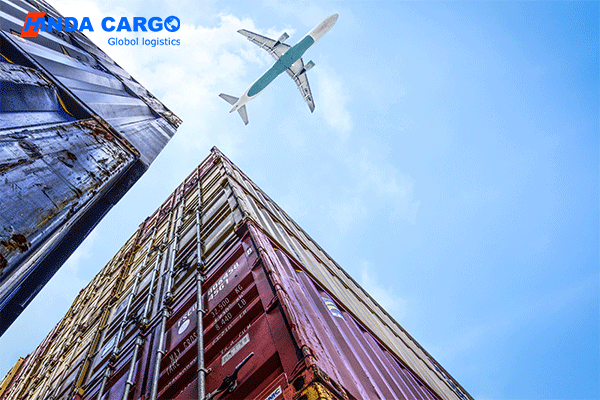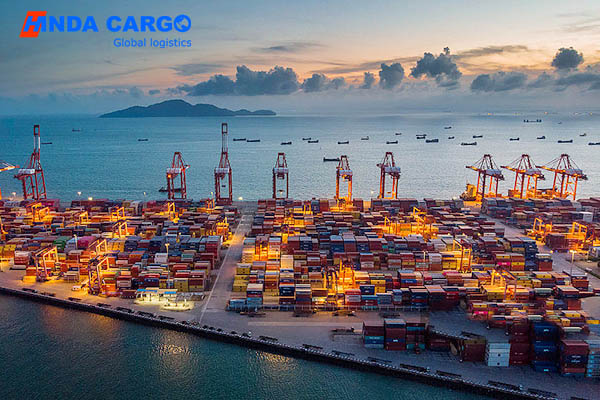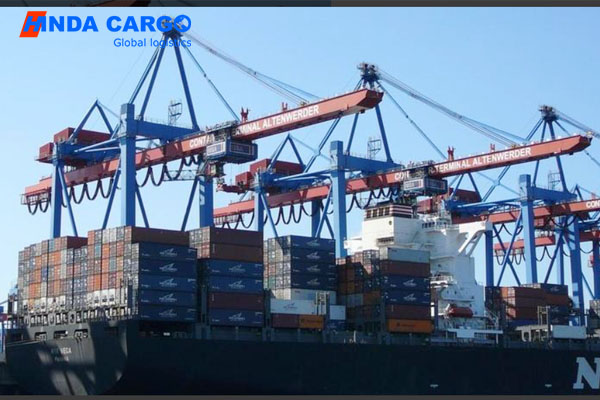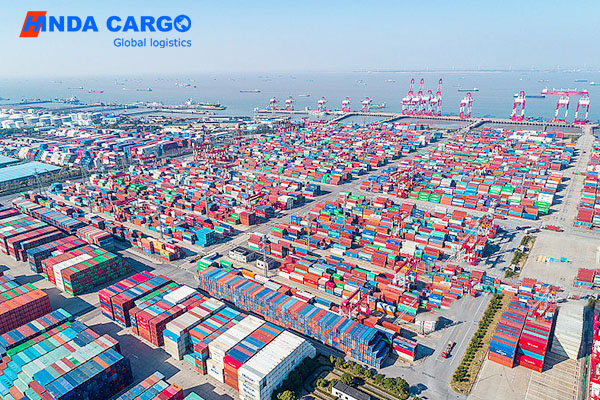What is the difference between EXW, FOB and CIF?
International trade terms have a profound impact on the import and export operations of enterprises, especially the three common trade terms of EXW, FOB and CIF. Understanding their differences is crucial to ensure smooth trade, reduce risks and control costs.
This article will deeply analyze the definitions, division of responsibilities, risk transfer and applicable scenarios of these three terms to help readers better understand and apply these terms.

EXW (Ex Works)
What is EXW?
EXW (Ex Works), or "Ex Works", is the simplest trade term. Under the EXW terms, the seller delivers the goods to the buyer at its premises (such as factories, warehouses, etc.). This means that the seller's responsibility ends before the goods are loaded on the means of transport.
1. Division of responsibilities: Under the EXW terms, the seller only needs to ensure that the goods are delivered on time at the designated location, without being responsible for loading, export customs declaration or paying any transportation costs. All risks, costs and responsibilities are borne by the buyer after the goods leave the seller's premises, including inland transportation, loading, shipping, insurance, customs clearance at the port of destination and inland transportation.
2. Risk transfer: Risk transfer occurs when the seller places the goods at the disposal of the buyer. In simple terms, all risks and costs are transferred to the buyer when the seller hands the goods to the buyer or its designated carrier.
3. Applicable scenarios: EXW is suitable for situations where the buyer is able to handle the entire transportation process and wants to fully control the transportation path and method of the goods. It is usually applicable when the buyer has a strong logistics network and resources in the seller's country.

FOB (Free on Board)
What is FOB?
FOB (Free on Board), which means "Free on Board at the Port of Shipment", is a more common trade term. Under the FOB terms, the seller transfers the responsibility and risk to the buyer after loading the goods on board the ship at the designated port of shipment.
1. Division of responsibilities: Under the FOB terms, the seller is responsible for transporting the goods from its premises to the designated port of shipment, handling export customs clearance procedures and loading the goods on board. The seller's responsibility ends when the goods pass the ship's rail, and the buyer is responsible for subsequent shipping, insurance, customs clearance and inland transportation at the port of destination.
2. Risk transfer: Risk transfer occurs when the goods cross the ship's rail. That is, when the goods are loaded on board, all risks and costs are transferred to the buyer.
3. Applicable scenarios: FOB is applicable when the seller is familiar with the export procedures of his country and can afford the transportation costs to the port of shipment, while the buyer wants to control the sea transportation part. It is widely used in sea and inland waterway transportation.

CIF (Cost, Insurance and Freight)
What is CIF?
CIF (Cost, Insurance and Freight), which means "Cost, Insurance and Freight", is a trade term widely used in sea transportation. Under CIF terms, the seller needs to pay the cost and insurance of transporting the goods to the destination port, but the risk is transferred to the buyer after the goods are loaded on board.
1. Division of responsibilities: Under CIF terms, the seller is responsible for transporting the goods to the designated port of shipment, handling export customs clearance procedures, loading the goods on board, and paying the sea freight and insurance to the destination port. The buyer is responsible for customs clearance at the destination port and inland transportation.
2. Risk transfer: Risk transfer occurs when the goods are loaded on board, although the seller needs to pay the freight and insurance to the destination port. In other words, although the seller is responsible for arranging transportation and purchasing insurance, once the goods are loaded, the buyer bears the risk of the goods in transportation.
3. Applicable scenarios: CIF is suitable for situations where the buyer wants the seller to handle transportation and insurance arrangements to reduce the complexity of its own operations. It is suitable for sea and inland water transport, especially for small importers who do not have strong logistics management capabilities.

What is the difference between EXW, FOB and CIF?
1. Differences in responsibilities and risks:
In EXW, the seller has the least responsibility and only needs to deliver the goods at its premises, and the risks and costs are borne by the buyer.
In FOB, the seller has moderate responsibility and is responsible for delivery at the port of shipment and export customs clearance. The risk is transferred after the goods are loaded.
In CIF, the seller has the greatest responsibility and is not only responsible for delivery at the port of shipment, but also needs to pay freight and insurance. The risk is transferred after loading.
2. Differences in applicable scenarios:
EXW is suitable for buyers with strong logistics capabilities and can independently handle all transportation matters from the seller's site to the final destination.
FOB is suitable for sellers who are familiar with their own export procedures and can handle transportation and customs clearance at the port of shipment, while the buyer wants to control the sea transportation part.
CIF is suitable for buyers who want to simplify operations and entrust the seller to handle transportation and insurance.
3. Balance between cost and control:
When choosing EXW, the buyer needs to bear more logistics management responsibilities and expenses, but can control the entire transportation chain.
When choosing FOB, the buyer and the seller have a certain balance in responsibilities and expenses, which is suitable for transactions where both parties have certain logistics management capabilities.
When choosing CIF, the seller bears more upfront costs and responsibilities, which is suitable for buyers who want to reduce the complexity of transportation operations and focus on the port of destination and subsequent sales.
Precautions in actual operation
●Clear contract terms: In international trade, it is very important to clarify the contract terms. Whether it is EXW, FOB or CIF, the contract should specify key details such as responsibility division, risk transfer point, and fee payment in detail to avoid disputes caused by different understandings.
●Understand relevant regulations: Different countries may have different detailed requirements for the implementation of trade terms. Import and export companies should fully understand the laws and regulations of relevant countries to ensure compliance.
●Insurance arrangements: Although CIF includes insurance, the buyer still needs to understand the insurance coverage and terms to ensure that the purchased insurance can cover all risks of the goods. Under FOB and EXW terms, the buyer should purchase transportation insurance separately according to their own needs.
●Partner selection: Selecting reliable logistics service providers and customs clearance agents is crucial to ensure the smooth delivery of goods. Especially under EXW terms, buyers need stronger logistics cooperation network support.

Summary of EXW, FOB and CI
In international freight, the three trade terms of EXW, FOB and CIF have their own characteristics and are suitable for different trade scenarios. EXW emphasizes the buyer's logistics capabilities, FOB is more balanced in responsibility and risk sharing, and CIF provides buyers with a more convenient solution.
Through the detailed analysis of this article, I hope to help companies better understand and use the three international trade terms of EXW, FOB and CIF, and be invincible in the global market.




